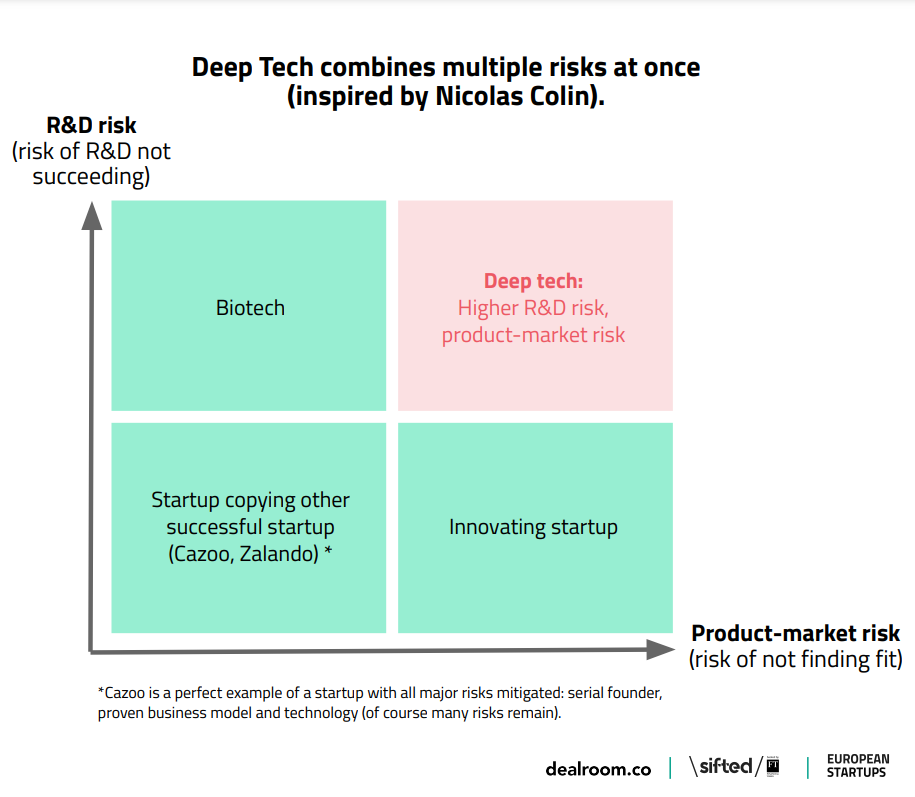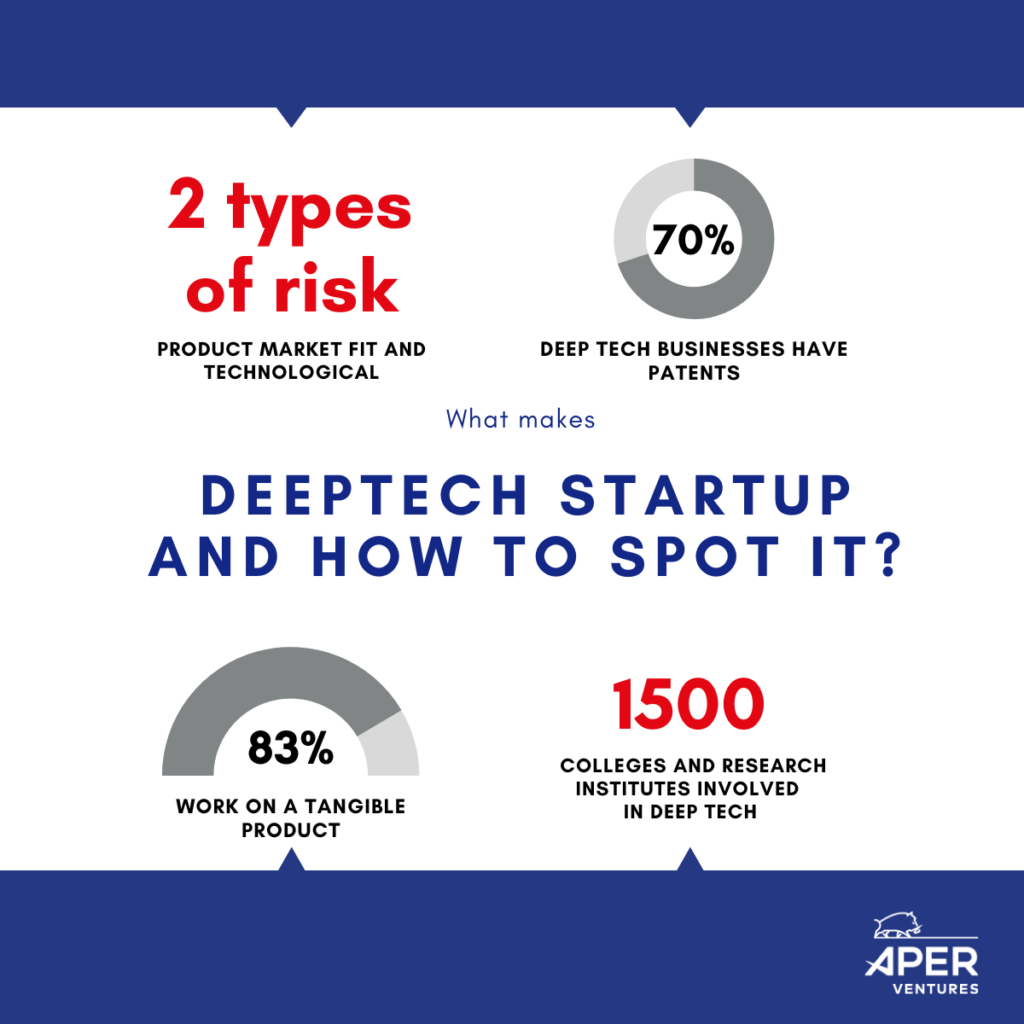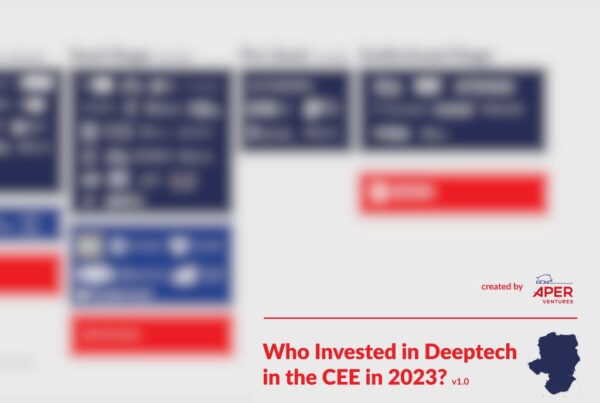If you’re an investor looking to get in on the next big thing, you need to know what makes a deep tech startup. These companies are on the forefront of technology, and they’re the ones driving innovation in the industry. Here’s how to spot them.
As the nature of venture capital dictates our deep tech definition focuses on two types of risks:
- product-market fit, risk typical of all startups (i.e. whether customers will want to use the solution),
- technology risk (i.e. whether, from an engineering, technological and scientific perspective there is a chance that it can be done at all).

Only then do we talk about deeptech.
“For a startup to earn the (…) label, there must be science or engineering risk in getting the idea to actually work and, assuming it does, risk in proving market demand for that product. If there is only one of these risks, but not both, then we’re not talking about a “deep tech” startup.” – Nathan Benaich, Founder & General Partner, Air Street Capital
Nethertheless, for many it’s still unclear how to tell if their startup should be included in the deep tech industry. Particularly AI solutions seem to be the battling ground. So how to tell if we would recognise the startup as such:
- The technology developed is almost impossible to copy – actually it is more economic for companies like Google, Amazon, BASF, Boston Dynamics, Tesla etc. to buy a startup rather than develop technology from scratch. Still it wouldn’t be easy due to patent or other IP protection. Around 70% of companies in this industry businesses have patents on their inventions. Frankly, that’s where most AI companies that reach out to us fail.
- Startup is part of the complex ecosystem combining work of research institutes, business, and many more. Though, looking for a deep tech unicorn among academic spin-offs is like searching a needle in a haystack it’s still the best place to start. According to Hello Tomorrow research, this industry involves over 1,500 colleges and research institutes.
- Companies quite probably create tangible items rather than software. Indeed, 83% of deep tech startups are working on a tangible product – even if in the end you plan to sell the licence rather than physical product.

Every startup entices us with the uniqueness of their solution. New applications can go hand in hand with technology that is well known, well researched and used by many industries. Deep tech is a balancing act, a stake between the known and uncertainty.
In Aper Ventures, we currently focus exclusively on funding:
- deep tech solutions at the beginning of commercialisation – at the inflection point where technological risks is in decline,
- hardware startups that are scaling up.
To learn more about our mindset behind deep tech investment learn about our portfolio company – The Batteries.
If you’re interested in learning more about deep tech, follow us on LinkedIn.






